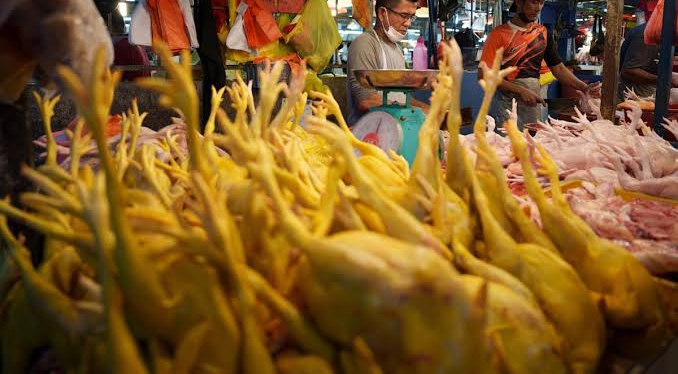Malaysia’s chicken export ban has kicked started from today June 1, a move that will affect 3.6 million whole chickens sold overseas every month.
The ban will be in place until production and prices stabilise, said the Malaysian authorities.
Analysts say rising chicken prices in Malaysia is just the tip of the iceberg amid a surge in consumer food prices due to global food insecurity. Apart from chicken, the supply of fish in the country has also fallen 70 per cent.
With more than a third of Singapore’s chicken supply coming from Malaysia, how are businesses here, such as wet market and chicken rice stalls, coping?
For consumers, what are some alternatives to the most widely consumed meat here?
Chicken sellers in Singapore are facing higher costs from suppliers on the first day of Malaysia’s ban on its chicken exports on Wednesday (June 1).
- Advertisement -
Some which are more dependent on Malaysian suppliers are ceasing operations for a month, although there were no long queues at markets visited by The Straits Times.
Chicken rice sellers said they are preparing to sell frozen chicken once their fresh chicken supplies are exhausted in a few days.
Most shoppers comfortable with frozen chicken or alternative meats as Malaysia ban looms
While a handful of shoppers at wet markets bought more fresh chicken than usual on Tuesday (May 31), others said they would buy only what they need and are comfortable switching to frozen poultry or other meats if fresh chicken is no longer available.
Meanwhile, some consumers took the opportunity to tuck into chicken rice and other dishes before Malaysia’s export ban on fresh chicken kicks in on Wednesday (June 1).
Among the shoppers who spoke to The Straits Times on Tuesday was warehouse operator Han Jun Yin, 42, who bought 10 chickens rather than her usual five at 216 Bedok North Market.




Comments are closed.